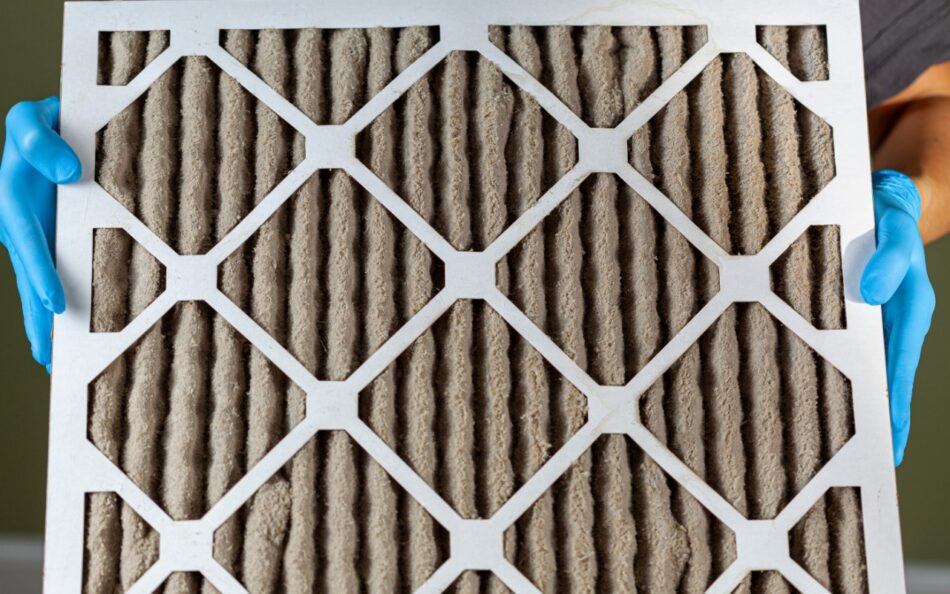The Importance of Clean Air Filters for Florida Homes

In Florida’s hot and humid climate, clean air filters are more than just a recommendation—they’re essential. When filters become clogged or dirty, they restrict airflow, reduce cooling performance, and create serious issues for your HVAC system. Homeowners across the state often overlook the importance of clean air filters in Florida, especially during peak AC season when systems are working nonstop to fight the heat and humidity.
At Cusano Air Conditioning, we educate homeowners across Broward County on the importance of clean air filters in Florida homes. It’s a simple yet powerful way to reduce strain on your system, improve air quality, and avoid costly breakdowns.
What Does Your HVAC Air Filter Do?
Your air filter is the first line of defense against airborne pollutants. It traps common contaminants such as:
- Dust
- Pet dander
- Pollen
- Mold spores
- Fibers and small debris
In Florida’s humid climate, particles build up fast, and the filter can quickly become clogged if not replaced regularly. When that happens, your AC loses efficiency, and you start to feel the effects.
How Dirty Air Filters Hurt Your AC System
A clogged or neglected air filter does more than just reduce airflow—it compromises your entire HVAC system’s performance, efficiency, and lifespan. In a high-demand climate like Florida, where air conditioners run nearly year-round, dirty filters can quickly create a domino effect of problems.
Reduced Efficiency, Increased Energy Costs, and Equipment Strain
When your air filter becomes congested with dust, pet hair, pollen, and other airborne debris, airflow through the system becomes restricted. This forces your HVAC unit to work harder and longer to push air through the ducts and cool your space. As a result, the system runs more frequently and for longer periods of time, which drives up energy usage and monthly utility bills.
Over time, this strain also affects vital components like the blower motor and compressor. These parts are designed to operate under a specific load—and when airflow is restricted, they’re pushed beyond their normal limits. This extra stress leads to faster wear and tear, meaning you’ll face more frequent repairs and may need to replace your system sooner than expected.
In Florida’s climate, where AC units are essential almost every day of the year, this kind of strain adds up quickly.
Higher Risk of Moisture Buildup and Mold Growth
Florida’s humidity doesn’t just make the air feel sticky—it also adds moisture to your HVAC system. When airflow is reduced by a clogged filter, condensation can form more easily on coils or inside ductwork. If that moisture can’t drain properly or evaporate efficiently, it creates a perfect breeding ground for mold, mildew, and bacterial growth.
Once mold begins to grow in your system or ducts, it doesn’t just affect performance—it directly impacts your indoor air quality and the health of everyone in your home. It can also lead to unpleasant musty odors and require costly duct cleaning or remediation.
Compromised Indoor Air Quality and Health Concerns
One of the primary functions of your air filter is to trap airborne pollutants such as pollen, dust mites, pet dander, and bacteria. But when the filter is saturated with debris, it stops doing its job—and those same contaminants begin to circulate throughout your home.
This is especially problematic in Florida, where allergy seasons are long and outdoor air quality can fluctuate due to mold, construction dust, or wildfires. Poor indoor air quality can worsen asthma, trigger allergic reactions, and contribute to long-term respiratory issues.
Clean air filters are critical to keeping your home’s air healthy, especially if you have children, seniors, or anyone with asthma or allergies in the household.
How Often Should You Replace AC Filters in Florida?
Most Florida homeowners should check or replace their air filters every 30 to 45 days. But some homes may need to do it even more frequently depending on:
- Pets – If you have dogs or cats, hair and dander can clog filters quickly. Consider replacing every 20 to 30 days.
- Allergy sufferers – Those with asthma or allergies benefit from cleaner air. Replace filters every 15 to 30 days.
- High pollen seasons – Spring and late summer bring elevated pollen counts, which means filters should be checked more often.
- Full-time use of HVAC – Since Florida AC systems run year-round, even seasonal residents should change filters every 2 to 3 months minimum.
Not sure if it’s time? Pull out your filter and check for discoloration or visible dust buildup.
Choosing the Right Filter for Florida Conditions
For most Florida homes, a MERV rating between 8 and 13 strikes the right balance between airflow and filtration. Higher-MERV filters catch smaller particles but may restrict airflow if your system isn’t designed for them. Always consult with an HVAC professional before switching to a higher-efficiency filter.
You can choose between disposable filters (which are replaced every month or so) or washable filters (which need to be cleaned and dried completely before reuse). Disposable filters tend to be more effective for allergy control and require less maintenance.
Routine Maintenance Goes Beyond Filters
While clean filters are essential, they’re just one part of a healthy HVAC system. Regular maintenance visits help keep your coils, drainage lines, electrical components, and airflow system in peak condition. Combined with clean filters, seasonal tune-ups can extend the life of your system and improve energy efficiency.
Keep It Clean. Keep It Efficient.
In Florida’s hot and humid environment, clean air filters aren’t optional—they’re a necessity. They protect your system, improve comfort, and help your home stay safe and breathable all year long.
At Cusano Air Conditioning, we offer maintenance plans that include regular filter changes, system inspections, and performance checks to keep your AC system running strong.
Contact us today to schedule your next HVAC tune-up or learn more about filter options for your Florida home.